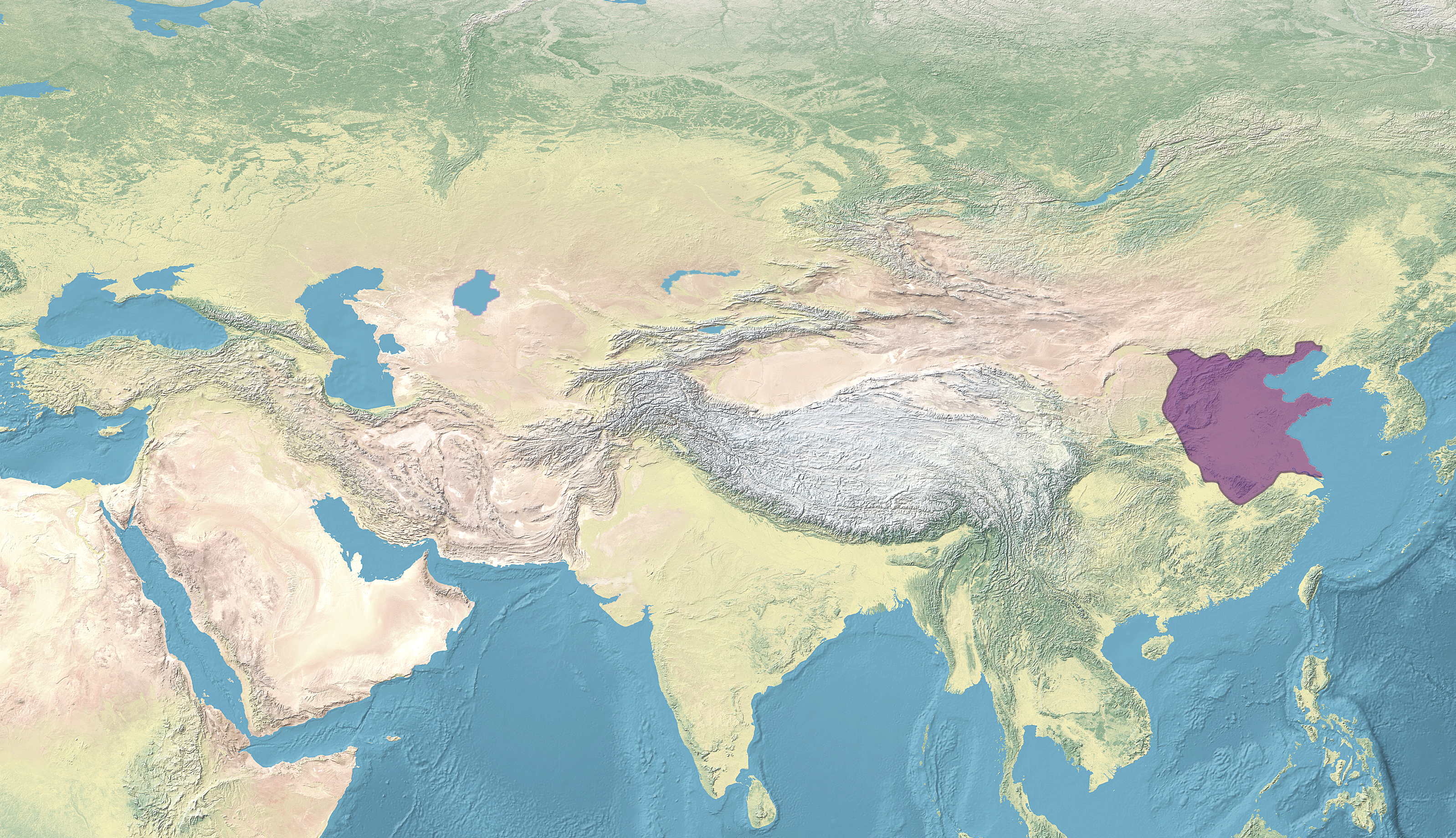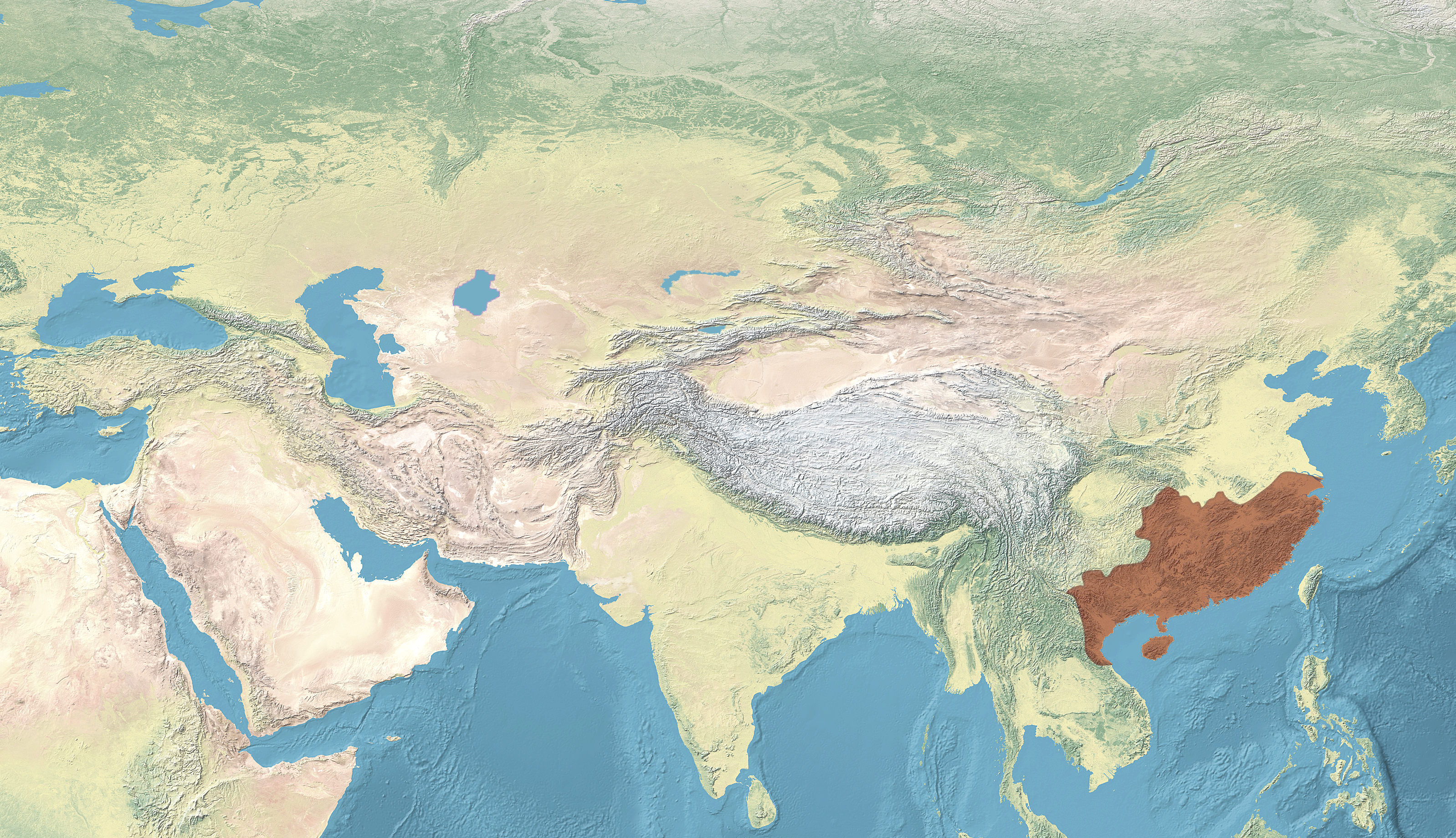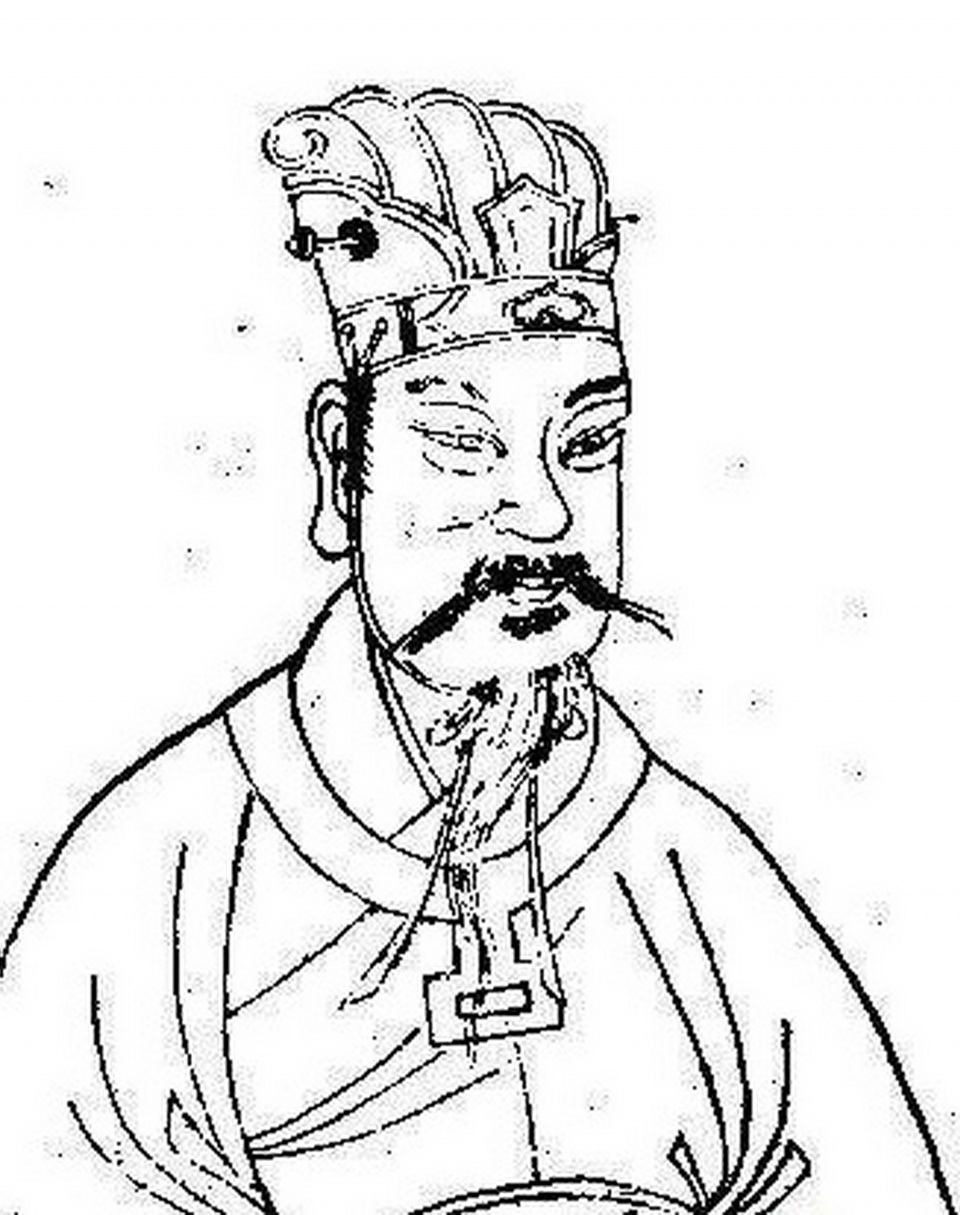|
Northern Qi
Qi, known as the Northern Qi (), Later Qi (後齊) or Gao Qi (高齊) in historiography, was a Dynasties in Chinese history, Chinese imperial dynasty and one of the Northern and Southern dynasties#Northern dynasties, Northern dynasties during the Northern and Southern dynasties era. It ruled the eastern part of northern China from 550 to 577. The dynasty was founded by Emperor Wenxuan of Northern Qi, Gao Yang (Emperor Wenxuan), and was eventually conquered by the Xianbei-led Northern Zhou, Northern Zhou dynasty in 577. History Northern Qi was the successor state of the Chinese Xianbei state of Eastern Wei and was founded by Emperor Wenxuan of Northern Qi, Emperor Wenxuan. Emperor Wenxuan had a Han Chinese, Han father of largely Xianbei culture, Gao Huan, and a Xianbei mother, Lou Zhaojun. As Eastern Wei's powerful minister Gao Huan was succeeded by his sons Gao Cheng and Gao Yang, who took the throne from Emperor Xiaojing of Eastern Wei in 550 and established Northern Qi as Emper ... [...More Info...] [...Related Items...] OR: [Wikipedia] [Google] [Baidu] |
Northern Dynasties
The Northern and Southern dynasties () was a period of political division in the history of China that lasted from 420 to 589, following the tumultuous era of the Sixteen Kingdoms and the Eastern Jin dynasty. It is sometimes considered as the latter part of a longer period known as the Six Dynasties (220–589). The period featured civil war and political chaos, but was also a time of flourishing arts and culture, advancement in technology, and the spread of Mahayana Buddhism and Taoism. The period saw large-scale migration of Han Chinese, Han people to lands south of the Yangtze. The period came to an end with the unification of China proper by Emperor Wen of Sui, Emperor Wen of the Sui dynasty. During this period, the process of sinicization accelerated among the non-Han ethnicities in the north and among the indigenous peoples in the south. This process was also accompanied by the increasing popularity of Buddhism in both northern and southern China and Daoism gaining in ... [...More Info...] [...Related Items...] OR: [Wikipedia] [Google] [Baidu] |
Northern And Southern Dynasties
The Northern and Southern dynasties () was a period of political division in the history of China that lasted from 420 to 589, following the tumultuous era of the Sixteen Kingdoms and the Eastern Jin dynasty. It is sometimes considered as the latter part of a longer period known as the Six Dynasties (220–589). The period featured civil war and political chaos, but was also a time of flourishing arts and culture, advancement in technology, and the spread of Mahayana Buddhism and Taoism. The period saw large-scale migration of Han people to lands south of the Yangtze. The period came to an end with the unification of China proper by Emperor Wen of the Sui dynasty. During this period, the process of sinicization accelerated among the non-Han ethnicities in the north and among the indigenous peoples in the south. This process was also accompanied by the increasing popularity of Buddhism in both northern and southern China and Daoism gaining influence as well, with t ... [...More Info...] [...Related Items...] OR: [Wikipedia] [Google] [Baidu] |
He Shikai
He Shikai () (524 – 30 August 571), courtesy name Yantong (彥通), was an official of the Northern Qi dynasty of China. He was a close associate of the Emperor Wucheng (Gao Zhan) prior to the latter's accession to the throne, and he became a powerful official (and lover to Emperor Wucheng's wife Empress Hu) during Emperor Wucheng's reign. He was criticized in traditional histories as a corrupt and incompetent official. After Emperor Wucheng's death, Emperor Wucheng's son Gao Yan, the Prince of Langya, was displeased with the authority that He Shikai was still wielding, and killed him in a coup in 571, but subsequently was himself killed. Background He Shikai was born in 524 and from Northern Qi's capital Yecheng. His ancestors were described as merchants from the Western Regions (''Xiyu'') and originally carried the family name Suhe (素和), which was later changed to He.However, when Emperor Xiaowen of Northern Wei changed Xianbei names to Han names in 496, Suhe was on ... [...More Info...] [...Related Items...] OR: [Wikipedia] [Google] [Baidu] |
Emperor Wucheng Of Northern Qi
Emperor Wucheng of Northern Qi ((北)齊武成帝) (537–569), personal name Gao Zhan (高湛; also romanized as Gao Dan), nickname Buluoji (步落稽), was an emperor of the Chinese Northern Qi dynasty. In traditional Chinese historiography, he was presented as a minimally competent ruler who devoted much of his time to feasting and pleasure-seeking, neglecting the affairs of the state. The state was governed with assistance from his adviser He Shikai and other appointed administrators. In 565, he passed the throne to his young son Gao Wei, taking the title '' Taishang Huang'' (retired emperor), but continued to make key decisions. He died in 569 at the age of 31, and the Northern Qi would fall in 577. Background Gao Zhan was born in 537, as the fourth of six sons of Eastern Wei's paramount general Gao Huan and his wife Lou Zhaojun (and Gao Huan's ninth son overall). He was greatly favoured by his father due to his exceptionally good looks. In 544, Gao Huan, in order to t ... [...More Info...] [...Related Items...] OR: [Wikipedia] [Google] [Baidu] |
Chen Dynasty
The Chen dynasty (), alternatively known as the Southern Chen (南陳 / 南朝陳) in historiography, was a Dynasties in Chinese history, Chinese imperial dynasty and the fourth and last of the Northern and Southern dynasties#Southern dynasties, Southern dynasties during the Northern and Southern dynasties period. Following the Liang dynasty, the Chen dynasty was founded by Emperor Wu of Chen, Chen Baxian (Emperor Wu). The Chen dynasty further strengthened and revitalized the economy and culture of southern China, and made territorial expansions northward, laying the foundation for future dynasties. It was conquered by the Sui dynasty in 589, marking an end to the Northern and Southern dynasties period in Chinese history. The descendants of the Chen imperial family continued to hold powerful high-ranking positions in the imperial courts of both the Sui and Tang dynasty, Tang dynasties. History Founding and expansion: Chen Baxian In the twilight of the Liang dynasty (548–55 ... [...More Info...] [...Related Items...] OR: [Wikipedia] [Google] [Baidu] |
Emperor Xiaojing Of Eastern Wei
Emperor Xiaojing of Eastern Wei ((東)魏孝靜帝) (524 – 21 January 552), personal name Yuan Shanjian (元善見), was the founder and the only Emperor of China, emperor of China's Eastern Wei dynasty. In 534, the Emperor Xiaowu of Northern Wei had fled the capital Luoyang to reestablish the imperial government at Chang'an. Northern Wei's paramount general Gao Huan made Emperor Xiaojing emperor as Emperor Xiaowu's replacement. Gao Huan moved the capital from Luoyang to Ye, China, Yecheng, thus dividing Northern Wei into two. Emperor Xiaojing's state became known as Eastern Wei. Although Gao Huan treated him with respect, real power was in the hands of Gao Huan, and then Gao Huan's sons Gao Cheng and Emperor Wenxuan of Northern Qi, Gao Yang. In 550, Gao Yang forced Emperor Xiaojing to yield the throne to him, ending the Eastern Wei and establishing the Northern Qi, Northern Qi dynasty. Around the new year 552, the former Emperor Xiaojing was poisoned to death on the orders of the ... [...More Info...] [...Related Items...] OR: [Wikipedia] [Google] [Baidu] |
Gao Cheng
Gao Cheng (; 521 – 15 September 549), courtesy name Zihui (子惠), formally Prince Wenxiang of Bohai (勃海文襄王), later further posthumously honored by Northern Qi as Emperor Wenxiang (文襄皇帝) with the temple name Shizong (世宗), was the paramount official of the Xianbei-led Chinese Eastern Wei, Eastern Wei dynasty, a branch successor state of the Northern Wei. He was Gao Huan's oldest son, and because his father wielded actual power during Emperor Xiaojing of Eastern Wei, Emperor Xiaojing's reign, Gao Cheng also received increasingly great authority, and after his father's death in 547 took over the reign of the state. He was considered capable but frivolous and arrogant, as well as lacking in sexual discretion. In 549, he was assassinated by his servant Lan Jing (蘭京), and his younger brother Emperor Wenxuan of Northern Qi, Gao Yang took over the control over the Eastern Wei regime. Background Gao Cheng was born in 521, when his father Gao Huan was still a ... [...More Info...] [...Related Items...] OR: [Wikipedia] [Google] [Baidu] |
Lou Zhaojun
Lou Zhaojun (; 501 – 20 May 562), posthumous name Empress Wuming (武明皇后), was an empress dowager and grand empress dowager of the Chinese Northern Qi dynasty. She was the wife of Gao Huan, the paramount general of the Northern Wei and Eastern Wei dynasties, and during Gao Huan's lifetime was already influential on the political scene. After Gao Huan's death, she continued to exert influence through the regency of her son Gao Cheng, and then as empress dowager after another son Gao Yang (Emperor Wenxuan) seized the Eastern Wei throne and established the Northern Qi. She continued to serve as grand empress dowager through the reigns of Gao Yang's son Gao Yin, and then again as empress dowager during the reigns of two more of her own sons, Emperor Xiaozhao and Emperor Wucheng. Background and marriage to Gao Huan Lou Zhaojun was born in 501, as the daughter of a rich merchant, Lou Gan (婁幹), and she grew up in Pingcheng (平城, in modern Datong, Shanxi), the old ca ... [...More Info...] [...Related Items...] OR: [Wikipedia] [Google] [Baidu] |
Gao Huan
Gao Huan () (496 – 13 February 547), Xianbei name Heliuhun (賀六渾), formally Prince Xianwu of Qi (齊獻武王), later further formally honored by Northern Qi initially as Emperor Xianwu (獻武皇帝), then as Emperor Shenwu (神武皇帝) with the temple name Gaozu (高祖), was the paramount general and a minister of the Xianbei-led Northern Wei dynasty and its branch successor state Eastern Wei dynasty. Although he was an ethnic Han, Gao was deeply influenced by Xianbei culture and was often considered more Xianbei than Han by his contemporaries. During his career, he and his family became firmly in control of the Eastern Wei court. Eventually, in 550, his son Gao Yang forced Emperor Xiaojing of Eastern Wei to yield the throne to him, establishing the Gao clan as the imperial house of a new Northern Qi dynasty. Background Gao Huan was born in 496, at Northern Wei's northern garrison town Huaishuo (懷朔鎮, near Guyang in modern Baotou, Inner Mongolia). He was e ... [...More Info...] [...Related Items...] OR: [Wikipedia] [Google] [Baidu] |
Han Chinese
The Han Chinese, alternatively the Han people, are an East Asian people, East Asian ethnic group native to Greater China. With a global population of over 1.4 billion, the Han Chinese are the list of contemporary ethnic groups, world's largest ethnic group, making up about 17.5% of the world population. The Han Chinese represent 91.11% of the population in China and 97% of the population in Taiwan. Han Chinese are also a significant Overseas Chinese, diasporic group in Southeast Asian countries such as Thailand, Malaysia, and Indonesia. In Singapore, people of Han Chinese or Chinese descent make up around 75% of the country's population. The Han Chinese have exerted a primary formative influence in the development and growth of Chinese civilization. Originating from Zhongyuan, the Han Chinese trace their ancestry to the Huaxia people, a confederation of agricultural tribes that lived along the middle and lower reaches of the Yellow River in the north central plains of Chin ... [...More Info...] [...Related Items...] OR: [Wikipedia] [Google] [Baidu] |
Eastern Wei
Wei (), known in historiography as the Eastern Wei (), was an Dynasties in Chinese history, imperial dynasty of China that followed the disintegration of the Northern Wei dynasty. One of the Northern and Southern dynasties#Northern dynasties, Northern dynasties during the Northern and Southern dynasties period, the Eastern Wei ruled the eastern part of northern China from 534 to 550. As with the Northern Wei, the ruling family of the Eastern Wei were members of the Tuoba clan of the Xianbei. History Gao Huan was the potentate of the eastern half of what was Northern Wei territory. In 534, following the disintegration of the Northern Wei dynasty, he installed Emperor Xiaojing of Eastern Wei, Yuan Shanjian as ruler of Eastern Wei. Yuan Shanjian was a descendant of the Northern Wei. Yuan Shanjian was a puppet ruler, as the real power lay in the hands of Gao Huan. Several military campaigns, such as the Battle of Shayuan, were launched against the neighboring Western Wei in an attemp ... [...More Info...] [...Related Items...] OR: [Wikipedia] [Google] [Baidu] |





